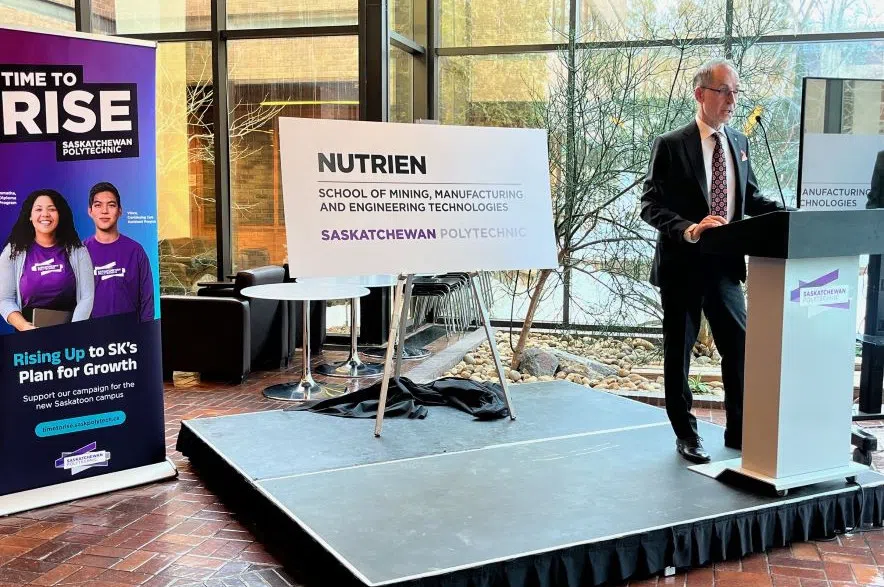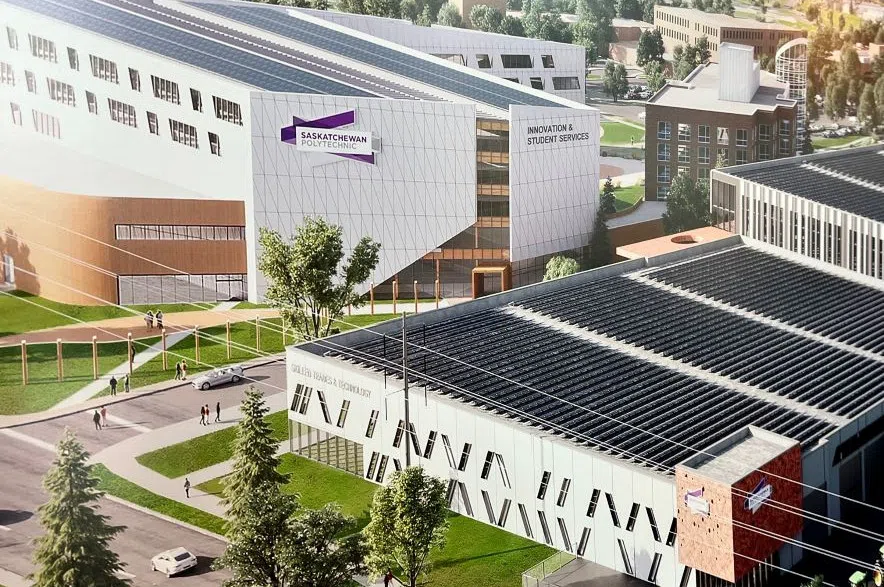Potash giant Nutrien has donated $15 million towards the construction of a new Saskatchewan Polytechnic campus at the University of Saskatchewan.
As well, Saskatchewan Polytechnic will rename one of its schools the Nutrien School of Mining, Manufacturing and Engineering Technologies.
The donation, said Nutrien president and CEO Chris Reynolds, is really an investment.
“As we think about our company and the needs our company is going to have going forward, in terms of a skilled workforce, it’s about investing in the future,” he said.
About 150 Sask. Polytechnic grads already work at Nutrien in a variety of capacities. Reynolds said the investment in the new campus will keep the “pipeline” of qualified grads coming in areas that the company will need, including engineering, welding, ironworks and underground mining.
“We’re growing and we’re going to need people to grow with us,” Reynolds added.
When the project was first announced, a media release said the new campus at the U of S “will transform an existing network of 11 decentralized, outdated buildings into a revitalized complex that offers modern, technology-rich learning for students and greater opportunities for applied research and investment.”
Dr. Larry Rosia, Sask. Polytech’s president and CEO, said the donation is a “game-changer” as the biggest private donation so far.
“It really demonstrates to the community, to industry (and) to the province the confidence that Nutrien has in Polytechnic to deliver the talent and the skills that it’s going to need in its future,” he said.
The donation, which is part of a $100-million fundraising drive called “Time to Rise,” brings the campaign’s total so far to around $57 million.
Rosia says the project is in the planning stage right now.
“There will be a lot of consultation taking place and this process will typically take 12 to 18 months before we have a design that then we can put out to tender,” he explained.
The provincial government is also investing $200 million in the project. Although earlier estimates pegged the cost of the project at around $500 million, Rosia said it’s too early to say what the final numbers will be.












